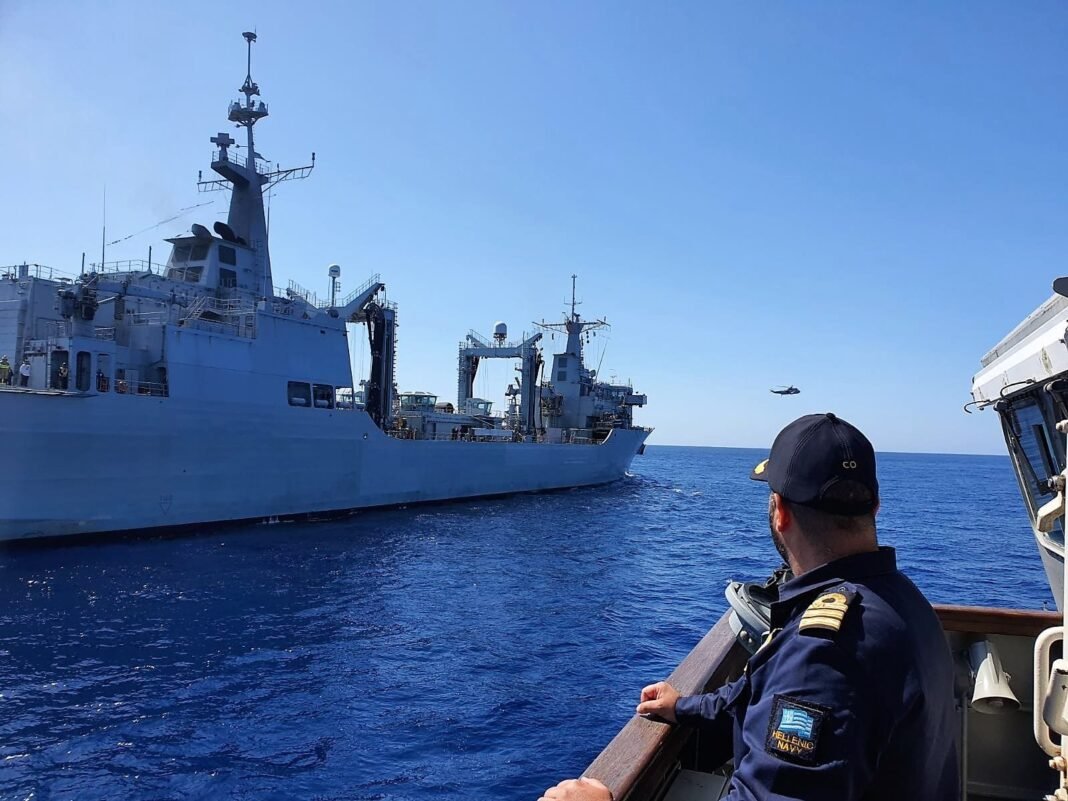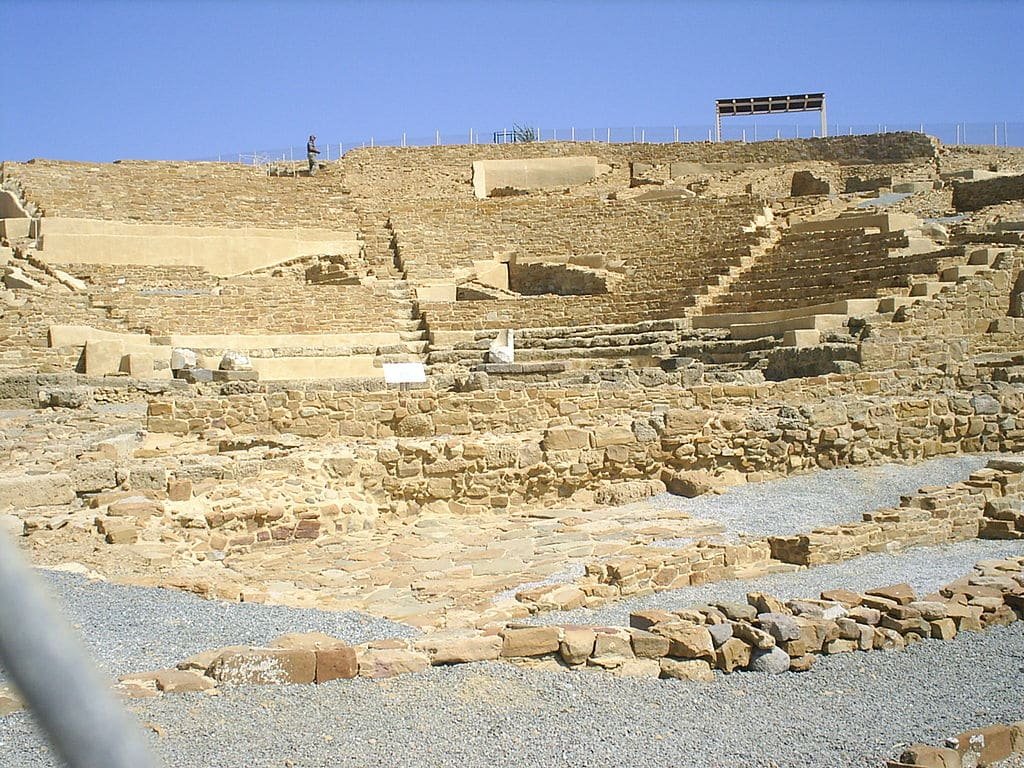
Greece and Israel have advanced their defense cooperation this week, conducting a joint naval and air exercise south of Crete and reactivating talks for major Israeli air defense and missile system acquisitions.
These moves underscore the growing strategic partnership between the two nations amid regional geopolitical shifts.
Joint military exercise between Israel and Greece
The joint exercise, conducted off the coast of Crete, involved a range of military assets, including frigates, missile boats, submarines, and Israeli Sa’ar corvettes.
A key component of the drill was the execution of long-range operational scenarios and an aerial refueling of Greek F-16 fighter jets by an Israeli tanker. This focus on extending operational range and improving interoperability reflects the deepening defense ties between Athens and Jerusalem.
The exercise followed Israel’s public expression of support for the Greece-Israel-Cyprus electricity interconnection project, highlighting the connection between energy security and defense cooperation.
In Athens, Israeli security officials, including Gil Reich and Maj. Gen. Roman Gofman, held meetings with their Greek counterparts. Following a directive from Prime Minister Benjamin Netanyahu, the discussions covered regional developments, energy cooperation, and future defense projects.
Air defense procurement talks resume for ‘Achilles’ Shield’
Athens has moved to reactivate negotiations to purchase several advanced Israeli air defense and missile systems. Talks had been previously paused due to sensitivities surrounding Israel’s operations in Gaza, but resumed with the fragile ceasefire now in place.
The planned acquisition is part of Greece’s comprehensive effort to modernize its air defense network—often referred to as the “Achilles’ Shield” program—aimed at replacing aging platforms and strengthening defenses against ballistic missiles, drones, and aerial threats.
The core of the procurement includes three Israeli-developed systems:
- Spyder System (Rafael Advanced Defense Systems): This will substitute the outdated Russian OSA-AK and TOR-M1 units, which have faced ongoing supply and maintenance issues.
- Barak MX System (Israel Aerospace Industries – IAI): This system is slated to replace the legacy Hawk missile launchers, providing upgraded medium-range capabilities. (Notably, IAI is the parent company of the Greek firm Intracom Defense).
- David’s Sling System (SkyCeptor variant): This long-range platform is being considered to succeed the aging S-300 platforms, whose support has become limited due to strained ties with Russia.
The proposed deal also includes the acquisition of PULS rocket launchers. Existing Patriot missile batteries will remain operational, serving as the backbone of the air defense network and ensuring seamless integration with the new Israeli systems.
Related: Crucial Moments in Greece’s Relations With Israel and Palestine


